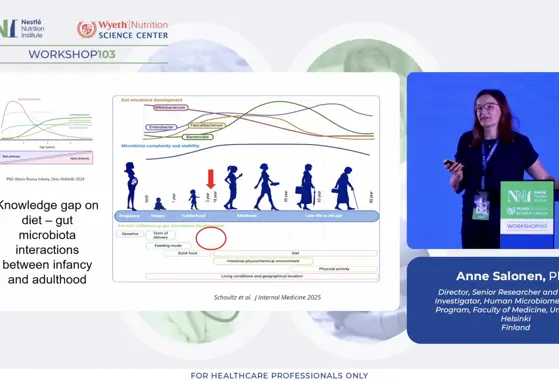CHILD study highlights the role of infant gut microbiota and ethnicity in the development of food sensitisation
An observational study by researchers in Hong Kong and Canada has found an association between infant gut microbiota development and the development of ethnicity-associated food sensitisation.
Food allergies and sensitivities are common, affecting more than one in four American children between one and five years old, and evidence suggests the gut microbiome plays a role in the development of this kind of sensitisation.
Both caesarean birth and formula feeding disrupt the typical transfer of microbiota from a mother to her newborn. Gut microbiota vary between ethnic groups, and the development of an infant’s microbiome may also be influenced by the use of antibiotics and other early life exposures, such as the presence of siblings and pets in the home.
The research, published in 2021 by Tun et al, used 16S rRNA amplicon sequencing to identify the composition of infant gut microbiota. Using 1422 full-term infants from the Canadian Healthy Infant Longitudinal Development Study (CHILD) cohort, researchers analysed 2844 fecal samples taken during the first year of the infants’ lives. They measured food sensitisation in these infants using skin prick tests, carried out at one and three years of age.
Researchers identified four developmental trajectories of gut microbiota, shaped by birth mode (vaginal or caesarean) and varying by ethnicity. Infants with persistently low gut Bacteroides abundance were shown to be three times more at risk of sensitisation to food allergens, particularly peanuts.
However, the likelihood of peanut sensitisation was much higher in babies with this gut bacterial composition if they were born to Asian mothers. These infants’ microbiomes were characterised by persistent colonisation of C. difficile and a deficiency in sphingolipid metabolism. This study is therefore the first to show how infant gut microbiota mediates the association between ethnicity and development of food sensitisation.
These findings suggest interventions to alter infant microbiota may help to prevent or manage food allergies in babies and toddlers, which could have significant implications for developing future treatments.
Reference: Tun et al. Ethnicity associations with food sensitization are mediated by gut microbiota development in the first year of life, Gastroenterology 2021
If you liked this post you may also like

Mindful Microbes: The Interplay Between Environment, Gut Microbiome, Brain, and Behavior

Exploring the Crosstalk: Nutrition, Microbiome, and Cardiometabolic Health

Guiding the Growing Gut: Microbiome and the Digestive Development of Children

Nourishing the Microbiome at Preschool age: Dietary influences from infancy to present